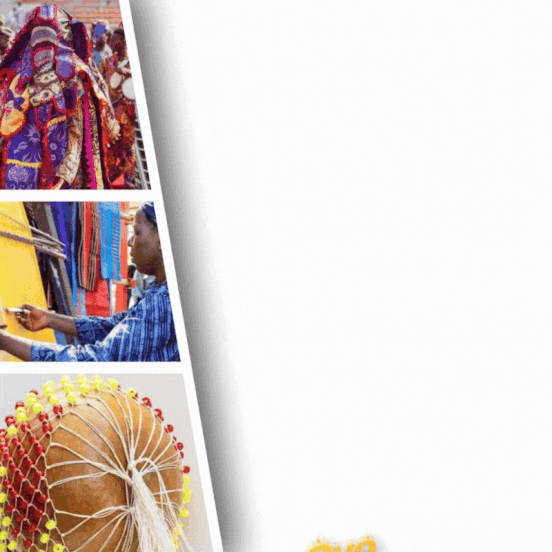The gaming industry in Nigeria has evolved from a pastime into a multi-billion-naira sector that fuels innovation, creates jobs, and boosts state revenues. From lottery kiosks on Ibadan streets to modern online betting platforms across Lagos, Enugu, and Rivers, gaming has become both a cultural and economic engine for young Nigerians. Yet, beneath this swift growth, a silent storm is gathering, one that could change the entire landscape of state-controlled gaming in the country.
It is a quiet but consequential constitutional crisis that is brewing between the authority of the Supreme Court and the legislative ambitions of the National Assembly. At the centre of the dispute lies the proposed Central Gaming Bill, 2025 (HB.2062), currently before the Senate for concurrence. While the Bill claims it will “regulate all forms of online and remote gaming across Nigeria,” its passage would not only violate an existing Supreme Court judgment but also threaten the fiscal autonomy, internal revenues, and constitutional rights of states such as Oyo, Lagos, Rivers, and Delta, all of which have developed thriving gaming and lottery boards to strengthen their economies.
In the aftermath of years of regulatory confusion, many states took control of their gaming industries, crafting frameworks that balanced entertainment, regulation, and economic value. Oyo State stands out as one of the pioneers in this renaissance. Under the leadership of the Chairman and Director-General of the Oyo State Gaming and Lottery Board (OYSGLB), Mr. Olajide Boladuro, the State has built a transparent, responsible, and revenue-driven system that benefits both operators and the government.
Through its regulatory policies, Oyo has redefined gaming as a legitimate economic activity, not just a pastime for the youth. The Board has prioritised fair play, responsible gambling, and social responsibility programmes that channel part of gaming proceeds into development initiatives. The sector now contributes significantly to the State’s internally generated revenue (IGR) and provides thousands of direct and indirect jobs. For a government focused on innovation and youth empowerment, gaming has become a vital engine for sustainable growth. However, all these efforts now face a grave threat.

In November 2024, the Supreme Court of Nigeria, in Attorney General of Lagos State & Ors v. Attorney General of the Federation & Ors (SC.1/2008), delivered a landmark judgment that settled the question of who has the constitutional power to regulate gaming and lottery in Nigeria. The apex court ruled unanimously that since neither lottery nor gaming appears on the Exclusive or Concurrent Legislative Lists of the 1999 Constitution, they fall under residual matters meaning that only State Governments have authority to regulate them.
More importantly, the judgment went further to nullify the entirety of the National Lottery Act (CAP N145, Laws of the Federation of Nigeria) not just its application within the FCT. In the 8th declaration, the Supreme Court expressly ordered that the Act be set aside in its entirety for being inconsistent with the 1999 Constitution. The Court equally declared, in its 5th declaration, that the National Assembly’s power to make laws on lottery or gaming matters is limited strictly to the Federal Capital Territory (FCT). By that judgment, all legislative and regulatory powers on gaming now reside exclusively with the states.
Despite this clear and binding decision, the National Assembly is attempting to reintroduce federal control through the Central Gaming Bill, 2025. The Bill seeks to create a Federal Gaming Commission that would license and regulate gaming operators nationwide effectively reversing the autonomy states gained through the Supreme Court ruling. Constitutional experts have described this move as a “judicial assault” and “constitutional perversion,” warning that it amounts to legislative defiance of the judiciary.
Now, the greatest danger of this Bill lies in its potential to undermine Nigeria’s federal structure. The Constitution clearly states that matters not listed on the Exclusive or Concurrent Lists belong to the States. By seeking to centralise gaming regulation, the National Assembly would effectively turn Nigeria’s federating units into administrative appendages of the Federal Government.
For Oyo State, and all others that have built independent gaming boards, the implications are severe. According to Mr. Boladuro, the Bill would “strip States of their constitutional powers and economic lifelines,” adding that it represents “a direct affront to the Supreme Court and the rule of law.” Over the years, gaming has become a cornerstone of State IGR. Oyo, Lagos, Rivers, Delta, and Ogun have leveraged the industry to fund infrastructural projects, boost social programmes, and drive youth empowerment. If passed, the Central Gaming Bill would divert these revenues from State treasuries into federal coffers, a move that contradicts the principles of fiscal federalism and economic justice.
In Oyo, where gaming supports entrepreneurship and creative innovation among the youth, this loss of regulatory control would cripple ongoing reforms and force dependency on Abuja. It would mirror Nigeria’s overcentralised oil-revenue model, a system long criticised for stifling growth and accountability. Even beyond economics, this Bill represents a dangerous disregard for judicial authority. Section 287(1) of the 1999 Constitution clearly mandates that “the decisions of the Supreme Court shall be enforced in any part of the Federation.” For the National Assembly to legislate contrary to a binding judgment is to challenge the supremacy of the Supreme Court itself.
The Federation of State Gaming Regulators of Nigeria, in its petition to Speaker Tajudeen Abbas, warned that “if every unsuccessful litigant in court resorts to extra-judicial means to reinstate what the Supreme Court has found unconstitutional, the very foundation of the rule of law will crumble.” Indeed, if lawmakers themselves ignore the law, what moral or legal authority remains to govern the rest of the nation?
The uncertainty caused by this Bill could also shake investor confidence. Since the 2024 judgment, gaming investors have trusted state frameworks for licensing and taxation. States like Oyo have created investor-friendly environments with clear rules and stable policies. Federal interference would bring confusion, duplication, and legal battles that could scare away local and foreign investors alike, destabilising one of the country’s fastest-growing non-oil sectors.
Supporters of the Bill argue that because gaming has gone digital, the Federal Government must regulate it. But the Supreme Court already dismissed this reasoning. The Court held that whether gaming is conducted physically or online, it remains constitutionally a residual matter for States.
Even globally, countries like the United States, Canada, Germany, and South Africa all federal democracies entrust gaming regulation to their subnational governments. Online or not, states maintain their autonomy, while federal agencies play supportive or coordinating roles. Nigeria should follow the same constitutional logic, not abandon it.The Senate now stands at a defining moment. Passing the Central Gaming Bill would not only amount to legislative overreach but would also send a dangerous signal that court judgments and constitutional limits can be ignored. This is more than a policy debate, it is a test of Nigeria’s commitment to democracy, rule of law, and true federalism.
For Oyo State and other subnational governments that have worked to build legitimate and innovative regulatory systems, this Bill represents a direct attack on progress. The National Assembly must remember that democracy thrives when power is respected, not abused, when laws are obeyed, not twisted to serve political ends.
The call is therefore clear and urgent, the Senate should suspend concurrence on the Central Gaming Bill, 2025, honour the Supreme Court’s ruling, and uphold the principles of federalism that guarantee both unity and autonomy in Nigeria’s constitutional order. Abuja must not hijack the hard-earned revenues and rights of the States.

